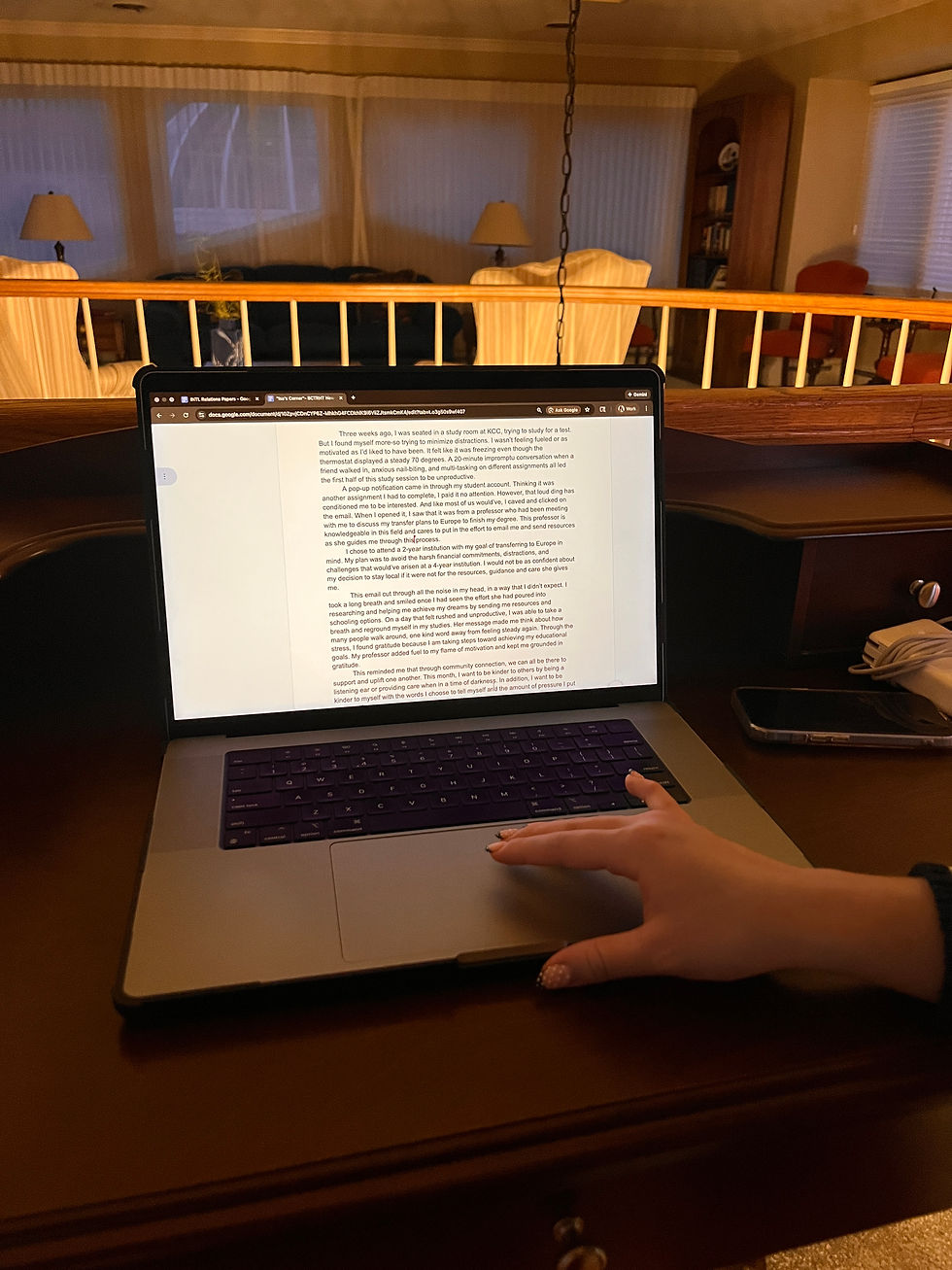Reading as a Practice of Freedom
- Elizabeth Garcia
- Aug 5, 2025
- 4 min read
By Elizabeth Garcia

In 2020, I was cleaning up after my nephews in our makeshift classroom. We were deep in lockdown, and I was working from home, doing what I could to help my sister and brother-in-law keep the boys grounded while the world felt upside down.
I had gotten into the habit of listening to podcasts while I cleaned. That day, I queued up an episode of NPR’s Code Switch called “Battle of the Books” (listen or read here). They explored what happens when the books assigned in school never reflect your identity—and how that shapes the way you see yourself, or don’t. One of the voices in the episode, Farah Jasmine Griffin, said something that stopped me in my tracks. She talked about how in Black literature, there isn’t really a choice between escape or reality. It’s both.
Her words landed deep. They felt true in my bones. Even in fantasy, romance, or sci-fi, Black, Indigenous, and queer authors carry both beauty and struggle. The stories may be magical, but the lens is real.

Growing up, books were my escape. But in the years before the pandemic, I read less—not out of burnout, but disconnection. I would read beautifully written stories, but they would leave me feeling empty. Not knowing what I wanted to read next. That feeling became familiar, like something essential was missing from the stories I chose.
As I listened to that Code Switch episode, I realized what that “it” was: I had been reading stories that didn’t reflect the fullness of who I was or the world I lived in. Whiteness had been so embedded in the stories I consumed that it quietly became the default—so much so that I didn’t notice what was missing.
In the middle of a pandemic, carrying so much grief and feeling untethered, I finally asked what kinds of stories deserved my attention. That episode helped me see how I’d been defaulting to what the mainstream called “good.” But now I wanted to be more intentional.
That shift reminded me: stories both save and rejuvenate me. They offer comfort, they challenge me, and they create new worlds when this one feels too heavy. Reading became a practice of freedom.
“Reading, for me, is a practice of freedom.”
That’s why I share books that nourish me—strategy sometimes, but more often longing, magic, resistance, and joy. Romance. Sci-fi. Fantasy. Memoir. Literary fiction. Stories by Black, Indigenous, queer, and global majority authors who dream and build boldly.

After that episode, I began seeking out authors whose lived experiences shaped their stories. I started reading with purpose—seeking books that offered more than escape.
I was surprised how hard it was to find booklists that matched the genres I loved. But the search stretched me—and led to stories that made me feel more connected in a world navigating collective grief.
Recognizing that core desire in every story—to be seen, heard, loved, and celebrated—nudged me to examine how I show up with others. If that longing is universal, I want my default response to be love and care. I won’t always get it right—but that’s part of being human.
As a former teacher, I often return to Dr. Rudine Sims Bishop’s powerful framing:
Books can be mirrors that reflect our own identities.
They can be windows into the lives of others.
And they can be sliding glass doors, invitations into new ways of being.
And when the world feels too loud, too fast, or too broken, stories help me slow down. They remind me that joy is resistance, rest is sacred, dreaming is part of the work—and we already carry our wholeness.
“Stories help me slow down. They remind me that joy is resistance.”
During the pandemic, I found myself slipping into fictional worlds to avoid what I couldn’t process. The grief was heavy, the losses endless. Reading became a way to survive—and eventually, a way to reconnect.
That quiet question became a steady practice. These days, I read everywhere: in the car, while I clean, while I organize. Audiobooks have made reading more accessible, and I love being able to support local bookstores when I can.
Each book leaves a mark—teaching me about leadership, grief, boundaries, and the possibility of something better.
I hope the stories I share here offer you something too—a spark, a question, or even just a quiet breath. They remind me that I’m not alone. And that imagining something better is how we begin shaping the world our hearts know is possible.
Reading to Feel, to Grow, to Heal
Sometimes people ask how I choose what to read next. It depends on what I need in the moment:
🌸 When I want to escape into beauty: I read Asian fantasy.
🛡️ When I want to feel brave: I read Southeast Asian or African mythology and fantasy.
💖 When I want to believe in love and acceptance: I read queer young adult romance.
🔥 When I need motivation: I read adventure fantasy with morally complex women.
🧠 When I want to grow as a leader: I read memoirs, nonfiction, or books recommended by mentors.
🧚♂️ When I need magic and joy: I read picture books with my nephews.
I'd love to know what you’re reading, and what it’s helping you remember. Our stories matter—and in the telling, we make more room for each other to belong, to dream, and to be free.




Comments